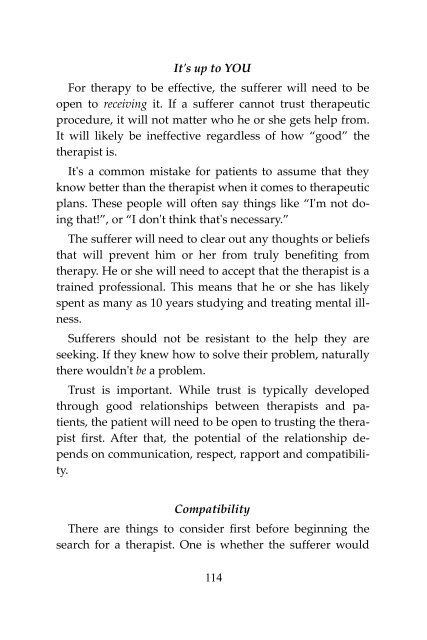You also want an ePaper? Increase the reach of your titles
YUMPU automatically turns print PDFs into web optimized ePapers that Google loves.
It's up to YOU<br />
For therapy to be effective, the sufferer will need to be<br />
open to receiving it. If a sufferer cannot trust therapeutic<br />
procedure, it will not matter who he or she gets help from.<br />
It will likely be ineffective regardless of how “good” the<br />
therapist is.<br />
It's a common mistake for patients to assume that they<br />
know better than the therapist when it comes to therapeutic<br />
plans. These people will often say things like “I'm not doing<br />
that!”, or “I don't think that's necessary.”<br />
The sufferer will need to clear out any thoughts or beliefs<br />
that will prevent him or her from truly benefiting from<br />
therapy. He or she will need to accept that the therapist is a<br />
trained professional. This means that he or she has likely<br />
spent as many as 10 years studying and treating mental illness.<br />
Sufferers should not be resistant to the help they are<br />
seeking. If they knew how to solve their problem, naturally<br />
there wouldn't be a problem.<br />
Trust is important. While trust is typically developed<br />
through good relationships between therapists and patients,<br />
the patient will need to be open to trusting the therapist<br />
first. After that, the potential of the relationship depends<br />
on communication, respect, rapport and compatibility.<br />
Compatibility<br />
There are things to consider first before beginning the<br />
search for a therapist. One is whether the sufferer would<br />
114


